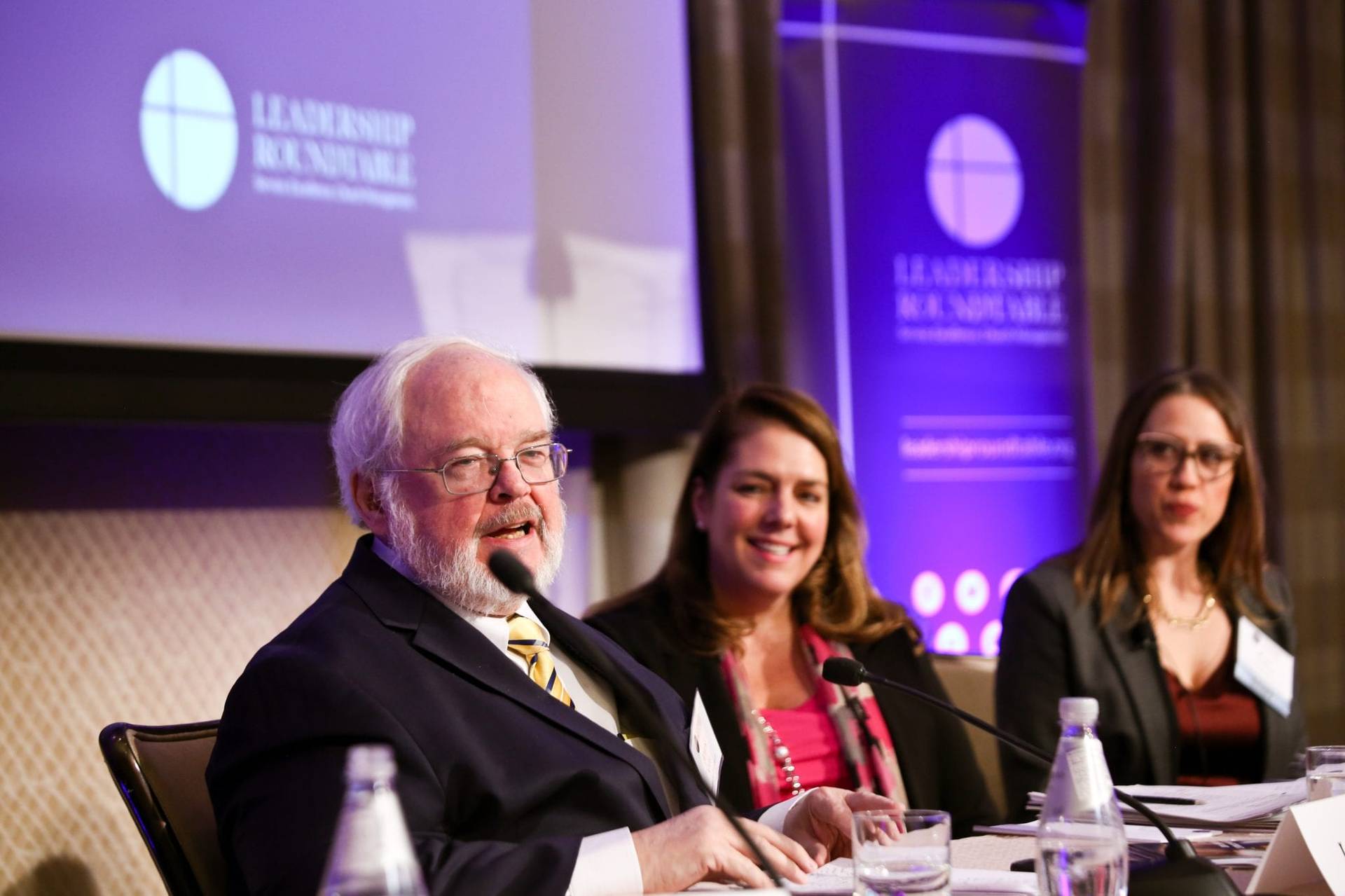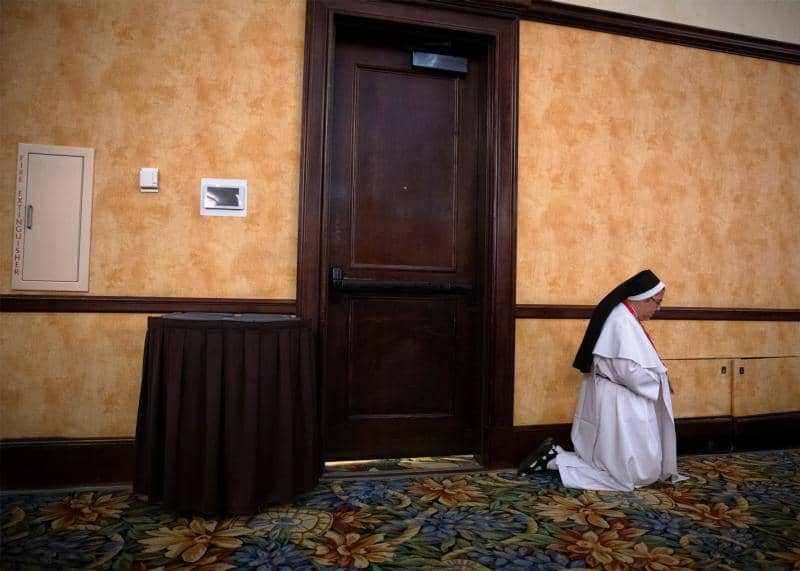ROME – In the 1994 movie classic “The Shawshank Redemption,” Tim Robbins plays a wrongly convicted inmate who eventually escapes by tunneling out of the thick stone structure using only a tiny rock hammer he uses to chip the prison wall away over a long stretch of time.
His primary confidante behind bars is played by Morgan Freeman, who, after the escape, comments on his friend’s passion for geology: “Geology is the study of pressure and time. That’s all it takes, really … pressure and time.”
At a Rome news conference Tuesday, a panel of women activists touted what might be called a “Shawshank solution” to the woes plaguing the Catholic Church, including the clerical sexual abuse crisis and sexual assaults against women religious – recommending the application of pressure, combined with the determination to stay the course.
It was a piece in a women’s supplement published by the Vatican newspaper earlier in February that prompted Pope Francis to acknowledge sexual abuse of nuns by clergy.
“It is true,” he said on Feb. 5 during an inflight news conference returning from the United Arab Emirates. “There are some priests and also bishops who have done it.”
Speaking to Crux, Barbara Dorris, who was raped by a priest at the age of six and served for many years as the Executive Director of the Survivors Network of those Abused by Priests (SNAP), said changes in the Church “have not come from within.”
Rather, she said, reform happens when Pennsylvania Attorney General Josh Shapiro issues a grand jury report, or when prelates such as Bishop Robert Finn, the former bishop of Kansas City-St. Joseph, are convicted for failing to report child abuse and compelled to resign.
“That’s when the changes happen,” Dorris said. “They have not made changes voluntarily,” she said, adding that she believes it will take the same pressure to address both the abuse of minors as well as the rape and abuse of women religious.
“I believe they will move forward only when forced and dragging their feet. I think it could take quite a while for them to recognize women as the victims of these crimes,” she said, adding that lifting the statute of limitations will be key to helping women come forward.
Whenever someone shares their story, she said, “it gives others permission to talk.”
Dorris spoke at a Feb. 19 event organized by the “Voices of Faith” organization, designed to call for greater inclusion of women’s voices in discussion on the protection of minors ahead of a Feb. 21-24 summit convened by Pope Francis.
Organizers noted that the summit, which will draw the participation of the presidents of bishops’ conferences from around the world as well as superiors of major orders and representatives from Eastern Catholic Churches, has only 10-15 women on a guest list of around 190.
“We strongly believe that open and transparent discussions with (women) is the first step in healing the Church,” said Zuzanna Flisowska, a representative of Voices of Faith.
In their speeches, each of the six women on the panel, which included abuse survivors, highlighted the difficulty women religious face in coming forward about abuse due to the power structure of the Catholic Church, as well as the shame they feel and the fear of being blamed.
Doris Wagner, a former consecrated member of the Spiritual Family the Work who claims she was raped by a male priest in the community, said that after her assault happened in 2008, she thought she was the only nun it had happened to, however, she was shocked when she later realized that according to various studies, some 30 percent of women religious experience sexual abuse by a male superior.
Wagner, whose complaint against Father Hermann Geissler for alleged solicitation in the confessional recently prompted the German priest to resign as the office manager in the Vatican’s Congregation for the Doctrine of the Faith, said that after her rape in 2008, she hesitated to come forward because as a woman religious, she had been educated to believe her value came from virginity, obedience and “readiness to suffer and serve.”
“If this is your view, would you dare to speak out when you are abused? No, because you feel ashamed and confused,” she said, noting that while some studies on the abuse of nuns exist, more need to be conducted, and laws ought to be enforced that prevent spiritual manipulation.
In a short video before her presentation, Wagner was shown speaking to Austrian Cardinal Christoph Schönborn of Vienna, who listened to her story.
“I am convinced that the issue of women is a pivotal sign of our times,” Schönborn said, adding that the problem will shine a new light on the topic of women in the Church.
According to Regina Franken-Wendelstrorf, a researcher, lecturer, women rights expert and former member of the Third Order of the Dominicans, “women must be seen as full equals” in the Church, rather than second-class citizens.
Dorris pushed for more accurate statistics on the abuse of minors. She said around half of the victims she has spoken with in previous years have been girls, despite widespread perceptions it primarily effects young boys.
“People are now discussing homosexuality rather than the crimes themselves,” she said, and as a result, “half the victims have been made to disappear, since women are not included.
Speakers said merely including women in Church discussions won’t do the trick, if structures and mindsets remain the same.
Wagner said that in her view, the one thing that really makes a difference “are people who are empathetic, who respect each other…those are the people we need in positions of power in the Church.”











